The faculty working closely with students in this program bring a wealth of research, academic and practical expertise in their respective fields of expertise.
The program is directed by Kevin Heffernan, Professor of Exercise Science at Syracuse University’s Falk College, and Karen Wolford, Coordinator of the Interdisciplinary Graduate Certificate in Trauma Studies at SUNY Oswego. The program manager is Moise Laub, a Navy veteran and graduate student at Syracuse University.
Students enrolled within the program will have the opportunity to work with faculty mentors from Syracuse University, SUNY Oswego and SUNY Upstate Medical University. You can review their profiles below. The program is further supported by additional distinguished consulting faculty from both Syracuse University and SUNY Oswego.
Faculty Mentors
Stephen Glatt, Ph.D.
SUNY Upstate Medical University
Dr. Glatt is Associate Director of Research for the Department of Psychiatry and Director of the Psychiatric Genetic Epidemiology & Neurobiology Laboratory (PsychGENe Lab) at SUNY Upstate Medical University. Dr. Glatt has published over 140 journal articles, which included undergraduate co-authors, invited manuscripts, and book chapters, and has been invited to present his work in numerous national and international forums. In his PsychGENe Lab, he oversees numerous students, including undergraduates and even high-school students. With particular reference to undergraduate students, Dr. Glatt is currently hosting a Presidential Fellow from Ithaca College and a student in the Renee Crown University Honors Program at Syracuse University. A current medical student at New York Medical College just completed her undergraduate Honors thesis work in the PsychGENe Lab under Dr. Glatt’s supervision. Furthermore, Dr. Glatt has directly mentored three students over two summers in our NSF-sponsored REU, involving each of these students in his ongoing PTSD biomarker research.
Research:
- Analysis of Genetically Regulated Gene Expression Identifies a Prefrontal PTSD Gene, SNRNP35, Specific to Military Cohorts.
- PTSD Blood Transcriptome Mega-Analysis: Shared Inflammatory Pathways across Biological Sex and Modes of Trauma.
- Blood-based gene-expression predictors of PTSD risk and resilience among deployed marines: a pilot study.
- Gene networks specific for innate immunity define post-traumatic stress disorder.
Kevin Heffernan, Ph.D.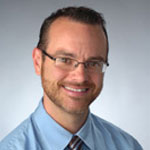
Principal Investigator, Syracuse University
Dr. Kevin Heffernan’s research examines the interaction of diet, nutritional supplementation and exercise on risk for cardiovascular disease. Cardiovascular disease (CVD) remains the #1 killer in in the United States and is also one of the leading causes of morbidity and mortality among U.S. Veterans. Prior combat exposure and PTSD may be unique risk factors for cardiovascular disease in the Veteran population. Our overarching research agenda will explore links between PTSD and CVD risk in young Veterans. We will also study the impact of various lifestyle factors and other related constructs (such as physical activity, cardiorespiratory fitness, and body composition) on PTSD and CVD risk in young Veterans. Dr. Heffernan runs and experiential learning lab at Syracuse University (The Human Performance Lab). Students in his lab have published over 30 scientific papers and presented over 50 scientific abstracts at various medical conferences, many receiving research awards for their scholarship.
Research:
- Sex differences in the association between PTSD symptoms with cardiac autonomic function and subclinical atherosclerotic risk.
- Association Of Physical Activity With Depression And Estimated Pulse Wave Velocity In Older Male Veterans.
- Effect of hypoxia on cerebrovascular and cognitive function during moderate intensity exercise.
- The relationship between carotid blood pressure reactivity to mental stress and carotid intima-media thickness.
Bryce Hruska, Ph.D.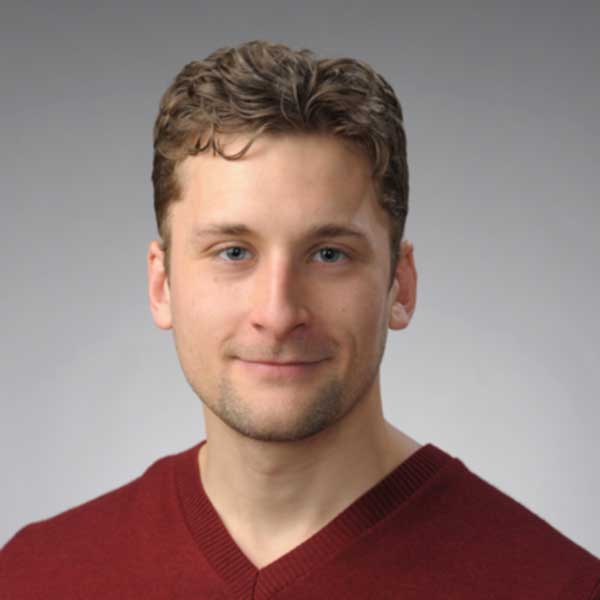
Syracuse University
Dr. Hruska is an Assistant Professor in the Department of Public Health at Syracuse University. His program of research considers the psychosocial risk and protective factors that differentiate people who develop PTSD and its co-occurring mental health disorders from people who recover following trauma exposure. This work has primarily been performed with patient populations interacting with the healthcare system (e.g., people experiencing injury requiring hospitalization, people seeking treatment for addictive disorders) and with healthcare providers delivering medical care (e.g., emergency medical service workers). While pursuing this program of research. Dr. Hruska has worked with both undergraduate and graduate students in a variety of ways including on independent research projects, conference presentations, and publications.
Research:
- Improving our understanding of the relationship between emotional abuse and substance use disorders: the mediating roles of negative urgency and posttraumatic stress disorder.
- The association between daily PTSD symptom severity and alcohol-related outcomes in recent traumatic injury victims.
- The utility of hair cortisol concentrations in the prediction of PTSD symptoms following traumatic physical injury.
- Trajectories of daily PTSD symptoms in recent traumatic injury victims.
- The physical health consequences of PTSD and PTSD symptoms: a meta-analytic review.
Andrew London, Ph.D.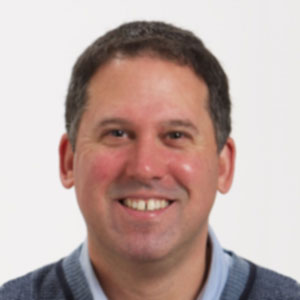
Syracuse University
Dr. London is Associate Dean for Administration and Research, and a Professor of Sociology, in the Maxwell School of Citizenship and Public Affairs at Syracuse University. He is a Faculty Associate in the Aging Studies Institute, and a Faculty Affiliate in the Center for Policy Research and the Lerner Center for Public Health Promotion. Dr. London is a Sociologist and Demographer who specializes in studying the health, care, and well-being of stigmatized and vulnerable persons and populations. Over the course of his career, he has published more than 85 peer-reviewed articles and book chapters, and three edited volumes, that focus on the lives of persons living with HIV/AIDS, caregivers, welfare-reliant and working poor women, children living in poverty, the formerly incarcerated, LGBT (lesbian, gay, bisexual, transgender)-identified persons, racial/ethnic minority persons, older adults, and adults living with Attention Deficit Hyperactivity Disorder (ADHD). For the past 15+ years, much of his research has focused on the life-course consequences of military service for health, mortality, social program participation, marriage/divorce, and health behaviors (e.g., smoking, drinking, sexual behavior). Dr. London has extensive experience teaching undergraduate statistics, as well as undergraduate and graduate classes on research design, and welcomes the opportunity to involve students in his research projects.
Research:
- Unlocking insights about military children and families.
- The Influence of Military Service Experiences on Current and Daily Drinking.
- The Influence of Men’s Military Service on Smoking Across the Life Course.
- Inter-Cohort Variation in the Consequences of U.S. Military Service for Men’s Mid- to Late-Life Body Mass Index Trajectories.
- Military service and men’s health trajectories in later life.
Kenneth James Marfilius, L.C.S.W., D.S.W.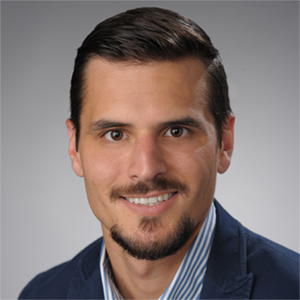
Syracuse University
Dr. Marfilius earned a Doctorate in Clinical Social Work (D.S.W.) and Master of Social Work (M.S.W.) from the University of Pennsylvania School of Social Policy and Practice in 2018 and 2013, respectively. He earned a B.A. in Psychology with a minor in Public Health from Syracuse University in 2011. Dr. Marfilius teaches courses on topics such as social work intervention, military culture and social work practice, psychopathology, and others. While active duty, Marfilius served in the U.S. Air Force Biomedical Science Corps in multiple roles: active duty clinical social worker, mental health therapist, family advocacy officer in charge, and as manager of the alcohol and drug prevention and treatment program. He was commissioned in 2012 and was discharged in 2016 having obtained the rank of captain. At the Barksdale Air Force Base, Marfilius served in a variety of mental health roles related to sexual assault prevention and response, suicide prevention, and traumatic stress. Marfilius has also worked for the U.S. Department of Veteran Affairs at the Syracuse VA Medical Center in the Healthcare for Homeless Veterans Program, and as a Disruptive Behavior Committee Member. Marfilius is honored with a National Defense Service Medal, Global War on Terrorism Service Medal, and Nuclear Deterrence Operations Service Medal. He is a recipient of the U.S. Air Force Health Professions Scholarship and the U.S. Air Force Outstanding Unit Award and has twice been awarded the Barksdale Air Force Base Medical Operations Squadron Company Grade Officer of the Quarter.
His research interests include: military trauma, military culture and mental health practice, adverse childhood experiences and military service, and intergenerational transmission of trauma in military families.
Media Coverage:
- The Hill: Kenneth Marfilius discusses causes and effects of PTSD.
- Importance of PTSD treatment among veterans and what we can do to help.
- Ken Marfilius discusses P.T.S.D. with Syracuse University News.
- WCNY Connect NY: Beyond PTSD: Veterans, Health & Society.
Samara L. Rice, Ph.D.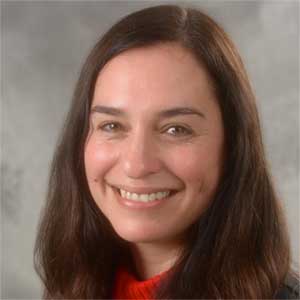
SUNY Oswego
Dr. Rice is a quantitative psychologist and assistant professor in the Psychology Department at SUNY Oswego. Her research has focused on the application of advanced latent variable modeling to better understand trajectories of change and putative mechanisms of change in substance misuse treatment research, as well as the outcomes of randomized clinical trials. She has mentored twelve students in the completion of their Research Capstone theses, which have resulted in eight institutional and international research conference presentations. Much of her research with undergraduate students has focused on the influence of Mindfulness-Based Stress Reduction in the treatment of alcohol use disorders.
Research:
- Longitudinal trajectories of readiness to change: alcohol use and help-seeking behavior.
- Development and psychometric evaluation of a rapid intimate partner violence perpetration screening tool.
Research:
- The Influence of Military Service Experiences on Current and Daily Drinking.
- The Influence of Men’s Military Service on Smoking Across the Life Course.
- Inter-Cohort Variation in the Consequences of U.S. Military Service for Men’s Mid- to Late-Life Body Mass Index Trajectories.
- Military service and men’s health trajectories in later life.
Consulting Faculty
Brooks B. Gump, Ph.D., M.P.H.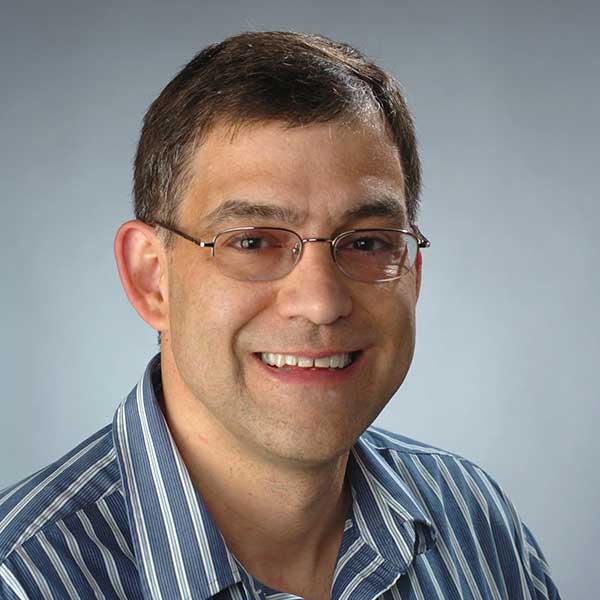
Syracuse University
Dr. Gump is the Falk Family Endowed Professor of Public Health at Falk College and currently serves as the Director of Graduate Programs. His research focuses on cardiovascular disease risk in children and environmental toxicants. Dr. Gump was awarded an R01 grant from the National Institute of Environmental Health Sciences and has been PI for an Academic Research Enhancement Award (AREA) from NIH. These projects involved many undergraduates in practicums, research assistantships, and independent studies. His teaching areas include epidemiology, health psychology, research methods, and advanced statistics.
Tiffany Koszalka, Ph.D.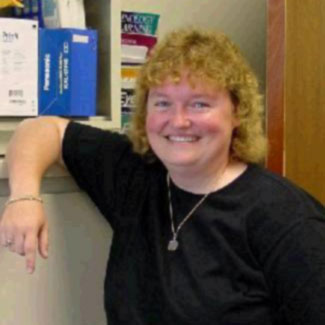
Syracuse University
Dr. Koszalka is currently a Professor in the Instructional Design, Development and Evaluation Department housed in the School or Education at Syracuse University. Her research focuses on studying the integration of learning, instruction, and technologies in instruction and learning environments. She is focused on R&D projects investigating online learning and digital learning resources to support distance education, blended/hyflex environments, and self-directed learning activities. She has been awarded grants from NIH, NASA, NSF, and the Department of Education and secured funding from foundations and university R&D initiatives. She is recognized as a Syracuse University Faculty Technology Associate based on her own practices of integrating technology into instruction and received a Meredith Professorship Teaching Recognition Award and, most recently an Excellence in Graduate Teaching award from Syracuse University’s graduate school. Dr. Koszalka was an elected officer for the Association for Educational Communications and Technology (AECT) and as a Director on the International Board of Standards for Training, Performance, and Instruction (ibstpi). She now is a life-time ibstpi fellow. She collaborates with colleagues worldwide and publishes on instructional sciences, technology integration, distance learning, and evaluation practices. Her scholarship includes 5 books, 8 book chapters, 18 manuals, 30 refereed articles, 40+ published conference papers, 40+ research reports, 70+ invited key notes, and 100+ conference presentations over the last 15 year.
Katherine McDonald, Ph.D., FAAIDD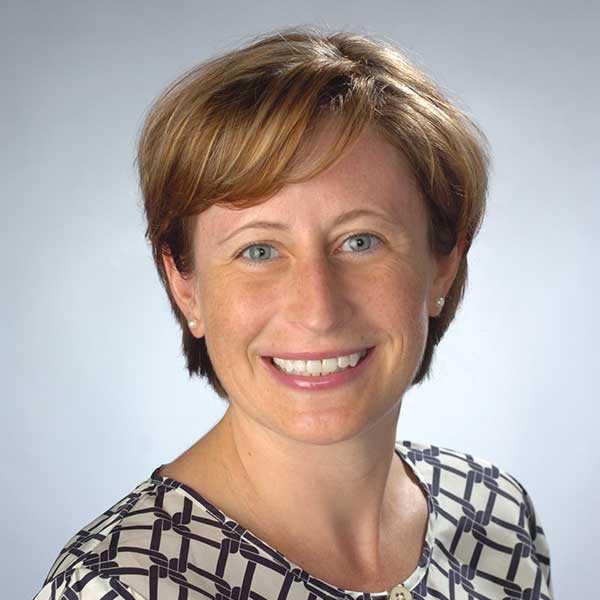
Syracuse University
Dr. McDonald is a Professor of Public Health and has worked with many students in research. She has worked hand-in-hand with students to design study protocols, collect and analyze data, and co-author presentations at national and international conferences, peer-reviewed manuscripts, and evaluation and research reports. Her federally-funded research includes the empirical study of ethical issues in research with adults with intellectual disability and participatory research with adults with developmental disabilities to understand and address disparities and their social determinants among people with an array of disabilities. Dr. McDonald has been an IRB member for over 10 years across 3 universities, and is currently the Chair of SU’s IRB. Dr. McDonald’s primary contribution will be to teaching and mentoring students on the Responsible Conduct of Research (RCR), and as an active scholar she anchors this contribution in her role as a researcher.
Tracey Musarra Marchese, MSW, LCSW-R
Syracuse University
Tracey Musarra Marchese is a licensed Clinical Social Worker (LCSW) in New York and New Jersey. During her 27 years of experience, Tracey has worked in various health and mental health settings, as well as in private practice. She has developed expertise in trauma, dissociation, and mind-body wellness. She is a certified perinatal bereavement counselor, has advanced training in Evolving Thought Field Therapy (EvTFT) and is Intermediate Level trained in Somatic Experiencing. Tracey is a professor of practice in the School of Social Work at Syracuse University, where she has developed and teaches advanced practice courses in the treatment of trauma with children and adults, and in death, dying, and terminal illness. She is an EMDR-certified therapist and an EMDRIA-approved EMDR consultant and trainer. She also has a private practice in Syracuse.
Karen Wolford, Ph.D.
Principal Investigator, SUNY Oswego
Dr. Wolford is the Coordinator of the Interdisciplinary Graduate Certificate in Trauma Studies at Oswego and has involved undergraduate students as co-authors (2 publications) and presenters (3 international conferences). She has supervised several McNair scholars who have been accepted to graduate programs with funding. Dr. Wolford is a licensed clinical psychologist whose research interests include treatment outcome studies, validational studies and scale development of psychological screening instruments (for organicity, suicidality). Additional areas of interest include psychological assessment, substance abuse, psychological trauma, mindfulness-based stress reduction research, and issues of race, class and gender.
Project Management
Moise Laub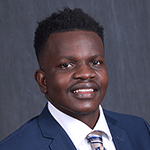
Project Manager, Syracuse University
Moise Laub is a Navy veteran and a recent Syracuse University graduate with a Bachelor’s Degree in International Relations. Moise plans to continue his education and obtain graduate degree in Public Administration at Syracuse University. Moise serves as the Project Manager for the program. In his role as Project Manager, Moise brings his background as a veteran, as a father, and as a lifelong learner to the program and to the students and staff he supports. He supports the program through recruitment, scheduling, budgeting, and overall planning. Over the last five years, Moise has taken part in community collaborations about trauma and resiliency workshops within Syracuse. He enjoys the work and believes the mission to bring trauma awareness and trauma sensitivity training and research is imperative to the well-being of the community.